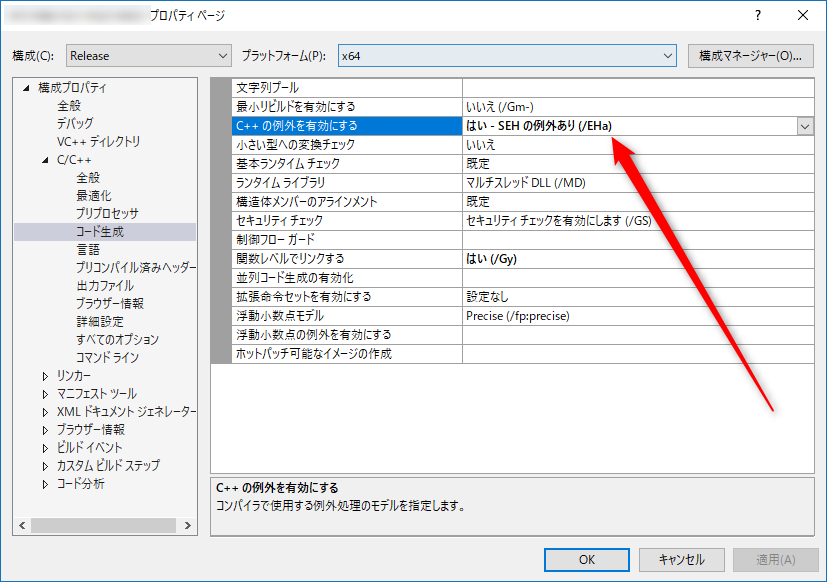Ⅲ. プログラム
ファイルの内容を全て読み込みむサンプルです。
Shift-JIS
#include <iostream>
#include <fstream>
#include <string>
ifstream ifs("shift-jis.txt");
string str((istreambuf_iterator<char>(ifs)), istreambuf_iterator<char>());
cout << str << endl;
#include <iostream>
#include <fstream>
#include <string>
#include <codecvt>
setlocale(LC_ALL, "");
wifstream ifs("UTF-8N.txt");
ifs.imbue(locale(locale::empty(), new codecvt_utf8<wchar_t>));
wstring str((istreambuf_iterator<wchar_t>(ifs)), istreambuf_iterator<wchar_t>());
wcout << str << endl;
#include <iostream>
#include <fstream>
#include <string>
#include <codecvt>
setlocale(LC_ALL, "");
wifstream ifs("UTF-8(BOM).txt");
ifs.imbue(locale(locale::empty(), new codecvt_utf8<wchar_t, 0x10ffff, consume_header>));
wstring str((istreambuf_iterator<wchar_t>(ifs)), istreambuf_iterator<wchar_t>());
wcout << str << endl
#include <iostream>
#include <fstream>
#include <string>
#include <codecvt>
setlocale(LC_ALL, "");
wifstream ifs("UTF-16LEN.txt");
ifs.imbue(locale(locale::empty(), new codecvt_utf16<wchar_t, 0x10ffff, little_endian>));
wstring str((istreambuf_iterator<wchar_t>(ifs)), istreambuf_iterator<wchar_t>());
wcout << str << endl
#include <iostream>
#include <fstream>
#include <string>
#include <codecvt>
setlocale(LC_ALL, "");
wifstream ifs("UTF-16LE(BOM).txt");
ifs.imbue(locale(locale::empty(), new codecvt_utf16<wchar_t, 0x10ffff, consume_header>));
wstring str((istreambuf_iterator<wchar_t>(ifs)), istreambuf_iterator<wchar_t>());
wcout << str << endl;
#include <iostream>
#include <fstream>
#include <string>
#include <codecvt>
setlocale(LC_ALL, "");
wifstream ifs("UTF-16BEN.txt");
ifs.imbue(locale(locale::empty(), new codecvt_utf16<wchar_t>));
wstring str((istreambuf_iterator<wchar_t>(ifs)), istreambuf_iterator<wchar_t>());
wcout << str << endl;
#include <iostream>
#include <fstream>
#include <string>
#include <codecvt>
setlocale(LC_ALL, "");
wifstream ifs("UTF-16BE(BOM).txt");
ifs.imbue(locale(locale::empty(), new codecvt_utf16<wchar_t, 0x10ffff, consume_header>));
wstring str((istreambuf_iterator<wchar_t>(ifs)), istreambuf_iterator<wchar_t>());
wcout << str << endl;










